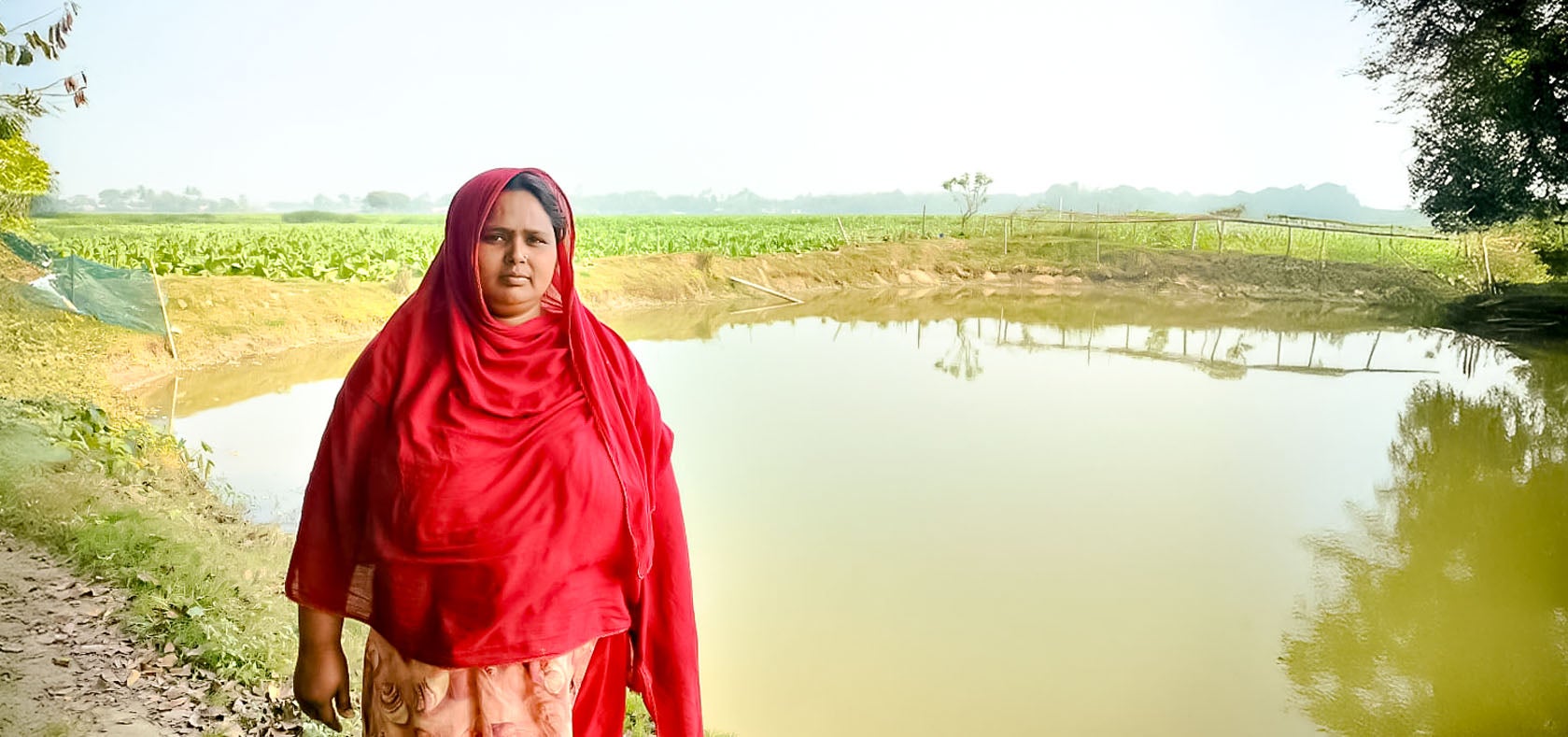In sustainable fish farming, a mother in Bangladesh finds the means to educate her children
Date:
Author: Yanke Lin
Kushtia, Bangladesh — For seven years, Bani Akter, a villager in Horingachi, Kushtia District of southwestern Bangladesh, had worked in moneylending to supplement her farming income. “That business,” she said, “caused us a lot of trouble, illnesses and constant worries.”
But everything changed two years ago, when Akter took a leap of faith and turned to raising fish.

Akter has two sons and a daughter, all of them in school. On 1 bigha of land (about 0.13 hectare) belonging to her father-in-law, she and her husband have been using seasonal crop cultivation to get up to three harvests a year. However, as the prolonged dry seasons began to severely cut yields, they faced an overwhelming challenge in meeting the increasing costs of their children’s education – until Akter saw potential for extra income in her pond.
Akter and her husband had been using a solar-powered pump to irrigate their crops for seven years, and she decided to also use the pump for her fish farming venture. In a region with frequent power outages and no reliable water source, the pump has been a crucial safeguard, helping Akter manage risks and sustain her business during the dry season.
“When the water level drops ... unlike other ponds, which cannot be easily refilled, our pond holds water well,” she said. “When farming fish over time …we use the pump to remove the bad water and refresh the pond.”
So far, Akter has sold 50,000-60,000 Bangladeshi taka (about USD 410-493) of fish after setting aside enough for her family’s consumption. That has helped cover the children’s school fees and private tuition.
Akter said that using clean energy has changed not only her life, but also the lives of many other farmers in the community.
“They do not have to spend extra money on fuel,” she said. “They can irrigate as much as they need without worrying about additional costs.”
This life-changing support is being made possible through a partnership between the Infrastructure Development Company Limited (IDCOL) and a programme co-run by UN Women, EmPower: Women for Climate-Resilient Societies. Through grants from the programme, IDCOL has expanded access to solar technology for rural women like Akter via affordable annual lease agreements and skills training. This has enabled more women to reduce reliance on fossil fuels, gain economic independence, build climate-resilient livelihoods, and contribute to the environmental sustainability of their communities.
Akter, who studied only up to eighth grade, wants her children to go to university, so she is considering expanding her business and farming more species of fish.
“We are working hard and earning honestly,” she said. “We’re not stealing or involved in corruption; we are in a good line of work.”
Today, five of Akter’s relatives work alongside her at the pond. She said she hopes other women in similar circumstances will look beyond traditional household duties and explore new opportunities, whether by joining her or starting their own businesses.
About EmPower: Women for Climate-Resilient Societies
Empower is a joint initiative of UN Women and the United Nations Environment Programme funded by the Governments of Germany, New Zealand, Sweden, and Switzerland. Now in its second phase (2023-2027), the programme works to accelerate gender-responsive and human rights-based climate actions across Asia and the Pacific.
To promote climate-resilient livelihoods, EmPower has established innovative and inclusive financing mechanisms that have enabled over 4,300 women and marginalized individuals to access affordable loans. These funds have allowed them to invest in clean technologies that help grow and sustain their businesses in the face of climate challenges.
For more information, please visit empowerforclimate.org